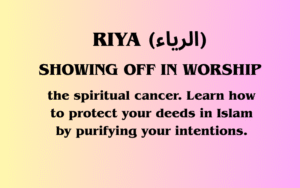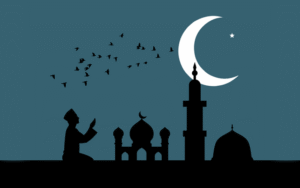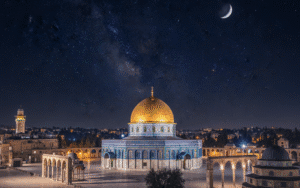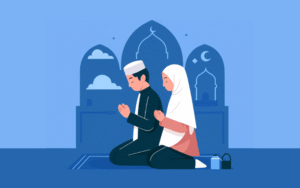The Mercy of Allah: A Guide to Redemption from Sins in Islam
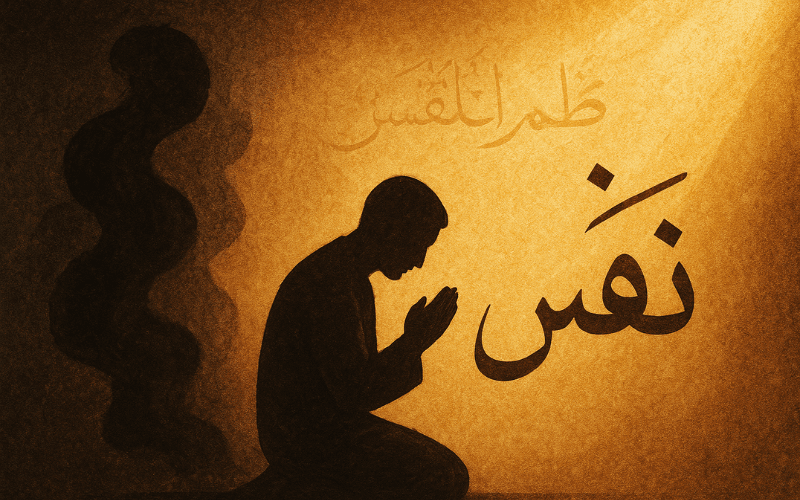
What is the greatest battlefield of our lives? And who is our greatest enemy? While we often search for enemies outside of ourselves, from an Islamic perspective, our greatest enemy—and our greatest friend—can be our own ‘Nafs,’ or soul. In fact, when we act against this soul and disobey Allah, we are not committing an injustice against anyone else but ourselves; this is the core understanding of sins in islam. Allah the Almighty states in the Qur’an:
وَمَن يَتَعَدَّ حُدُودَ اللَّهِ فَأُولَٰئِكَ هُمُ الظَّالِمُونَ
“And whoever transgresses the limits of Allah, then such are the wrongdoers (Zalimun).”
(Surah Al-Baqarah, 2:229)
This wrongdoing, or Zulm, does not harm Allah in any way. Instead, the one who commits it bears its full burden and tragic consequences. Therefore, oppressing the self is, in essence, a betrayal of the soul. In this article, guided by the light of the Holy Qur’an and authentic Hadith, we will delve into the meaning of oppressing the self, explore its various forms, learn from the profound examples of the Prophets, and ultimately discover the definitive path to redemption.
Part 1: Understanding ‘Zulm an-Nafs’ — The True Nature of Sins in Islam
The literal meaning of Zulm is injustice or wrongdoing, often defined as “placing something in other than its rightful place.” Consequently, from this standpoint, every sin is a form of Zulm that a person commits against their own soul.
The Soul as a Trust (Amanah) and Our Betrayal
The Almighty Allah entrusted us with our bodies and souls as a sacred trust (Amanah). The inherent nature of the soul (Fitrah) is pure. Therefore, when we sin, we betray this sacred trust. Allah says:
وَمَن يَتَعَدَّ حُدُودَ اللَّهِ فَقَدْ ظَلَمَ نَفْسَهُ
“And whoever transgresses the limits of Allah has certainly wronged himself.”
(Surah At-Talaq, 65:1)
Our sins do not diminish Allah’s kingdom in the slightest. To be clear, in a Hadith Qudsi, Allah says:
“O My servants, if the first of you and the last of you, the human of you and the jinn of you, were to be as wicked as the most wicked heart of any one man among you, that would not decrease from My dominion in the least… He who finds good, let him praise Allah; and he who finds other than that, let him blame no one but himself.”
(Sahih Muslim, Hadis: 2577)
Lessons from the Prophets: Acknowledging Our Wrongs
Even the Prophets, when they made unintentional minor errors, immediately recognized them as ‘oppression upon the self’ and sought Allah’s forgiveness. Indeed, this holds a great lesson for us all.
- Adam and Hawa (AS): After eating the forbidden fruit, they repented with the words:
“قَالَا رَبَّنَا ظَلَمْنَا أَنفُسَنَا وَإِن لَّمْ تَغْفِرْ لَنَا وَتَرْحَمْنَا لَنَكُونَنَّ مِنَ الْخَاسِرِينَ”
“They said, ‘Our Lord, we have wronged ourselves, and if You do not forgive us and have mercy upon us, we will surely be among the losers.'”
(Surah Al-A’raf, 7:23) - Musa (AS): After unintentionally striking a man and causing his death, he immediately prayed:
“قَالَ رَبِّ إِنِّي ظَلَمْتُ نَفْسِي فَاغْفِرْ لِي”
“He said, ‘My Lord, indeed I have wronged myself, so forgive me.'”
(Surah Al-Qasas, 28:16) - Yunus (AS): From the darkness of the whale’s belly, he acknowledged his error and called out:
“لَّا إِلَٰهَ إِلَّا أَنتَ سُبْحَانَكَ إِنِّي كُنتُ مِنَ الظَّالِمِينَ”
“‘There is no deity except You; exalted are You. Indeed, I have been of the wrongdoers.'”
(Surah Al-Anbiya, 21:87) - Queen Bilqis of Saba: Upon embracing faith and leaving the darkness of shirk, she declared:
“قَالَتْ رَبِّ إِنِّي ظَلَمْتُ نَفْسِي وَأَسْلَمْتُ مَعَ سُلَيْمَانَ لِلَّهِ رَبِّ الْعَالَمِينَ”
“She said, ‘My Lord, indeed I have wronged myself, and I submit with Solomon to Allah, Lord of the worlds.'”
(Surah An-Naml, 27:44)
Part 2: Common Forms of Sins in Islam: Ways We Commit Injustice Against Our Souls
We constantly burden our souls with injustice in countless ways. Specifically, below are some of the primary means through which we harm ourselves.
1. Shirk (Associating Partners with Allah): The Greatest Injustice
Luqman the Wise advised his son, saying:
“يَا بُنَيَّ لَا تُشْرِكْ بِاللَّهِ ۖ إِنَّ الشِّرْكَ لَظُلْمٌ عَظِيمٌ”
“O my son, do not associate [anything] with Allah. Indeed, association [with him] is a great injustice.”
(Surah Luqman, 31:13)
2. Riya (Showing Off in Worship): The Hidden Shirk
Worship is exclusively for Allah. Thus, when it is done to impress people or to gain their praise, it becomes Shirk Al-Asghar (minor shirk). The Messenger of Allah (ﷺ) said:
“A man stands for prayer and beautifies his prayer because he sees people looking at him. That is the hidden shirk.”
(Sunan Ibn Majah, Hadis: 4204)
To protect ourselves from this, he taught us to supplicate:
“اللَّهُمَّ إِنَّا نَعُوذُ بِكَ مِنْ أَنْ نُشْرِكَ بِكَ شَيْئًا نَعْلَمُهُ، وَنَسْتَغْفِرُكَ لِمَا لَا نَعْلَمُ”
“O Allah, we seek refuge in You from knowingly associating anything with You, and we seek Your forgiveness for what we do not know.”
(Musnad Ahmad, 19606)
3. Turning Away from Divine Revelation (Wahi)
To gain knowledge of the Qur’an and Sunnah but then turn away from practicing it is a clear form of injustice. For this reason, Allah asks:
“وَمَنْ أَظْلَمُ مِمَّن ذُكِّرَ بِآيَاتِ رَبِّهِ فَأَعْرَضَ عَنْهَا”
“And who is more unjust than one who is reminded of the verses of his Lord but turns away from them?”
(Surah Al-Kahf, 18:57)
4. Violating the Rights of Others
This is a form of Zulm that Allah does not forgive until the person who was wronged forgives. To illustrate the severity of this, the Prophet (ﷺ) described the most bankrupt person of his Ummah as one who will:
“…come on the Day of Resurrection with prayer, fasting, and charity, but he had insulted this one, slandered that one, consumed the wealth of this one, shed the blood of that one, and beaten that one. So he will be given from his good deeds to this one and that one. If his good deeds run out before he has paid what he owes, some of their sins will be taken and cast upon him, and then he will be thrown into the Fire.”
(Sahih Muslim, 2581)
5. Flaws in Character
- Stinginess: The Messenger (ﷺ) said,
“Beware of stinginess, for it destroyed those who were before you. Specifically, it incited them to shed blood and to make the sacred permissible.”
(Sahih Muslim, 2578) - Wastefulness: The extravagant are the brothers of the devils. On the other hand, Allah describes His beloved servants:
“وَالَّذِينَ إِذَا أَنفَقُوا لَمْ يُسْرِفُوا وَلَمْ يَقْتُرُوا وَكَانَ بَيْنَ ذَٰلِكَ قَوَامًا”
“And [they are] those who, when they spend, do so not excessively or sparingly but are ever, between that, justly moderate.”
(Surah Al-Furqan, 25:67) - Disobeying Parents: The Prophet (ﷺ) said,
“May his nose be rubbed in dust! (He for whom) his parents, one or both of them, reach old age, and he does not enter Paradise (by serving them).”
(Sahih Muslim, Hadis 2551) - Exposing Others’ Secrets: The Prophet (ﷺ) warned,
“Whoever seeks out the faults of his Muslim brother, Allah will seek out his faults. And if Allah seeks out his faults, He will expose him, even in the privacy of his own home.”
(Jami` at-Tirmidhi, 2032)
6. Engaging in Major Sins (Kaba’ir)
Associating partners with Allah, killing a child for fear of poverty, and committing adultery with a neighbor’s wife are among the gravest sins. (Sahih al-Bukhari, 6861; Sahih Muslim, 86). Without a doubt, these major sins, which are the most severe form of injustice to the soul, are not forgiven without sincere repentance. Moreover, all sins in islam have consequences, but these require immediate turning back to Allah.
Part 3: The Path to Redemption in Islam — How to Heal the Soul

There is no room for despair in Islam. In truth, even if you have committed a mountain of injustice against your soul, the door to redemption in islam is wide open. For example, Allah says:
وَمَن يَعْمَلْ سُوءًا أَوْ يَظْلِمْ نَفْسَهُ ثُمَّ يَسْتَغْفِرِ اللَّهَ يَجِدِ اللَّهَ غَفُورًا رَّحِيمًا
“And whoever does a wrong or wrongs himself but then seeks forgiveness of Allah will find Allah Forgiving and Merciful.”
(Surah An-Nisa, 4:110)
For those wondering how to make tawbah for major sins, the primary steps on this royal road to salvation are mercifully clear:
1. How to Make Tawbah for Major Sins: Sincere Repentance (Tawbah) and Istighfar
The journey back begins with sincere Tawbah and Istighfar. To clarify, this involves acknowledging the sin, feeling deep remorse, and resolving never to return to it. The Messenger of Allah (ﷺ) said:
“When a believer commits a sin, a black spot appears on his heart. If he repents and seeks forgiveness, his heart is polished clean.”
(Jami` at-Tirmidhi, 3334)
2. A Powerful Dua for Repentance of Major Sins Taught by the Prophet (ﷺ)
The Prophet (ﷺ) taught Abu Bakr As-Siddiq (RA) to recite the following supplication in his prayer. This specific prayer is a profound dua for repentance of major sins:
“اللَّهُمَّ إِنِّي ظَلَمْتُ نَفْسِي ظُلْمًا كَثِيرًا، وَلَا يَغْفِرُ الذُّنُوبَ إِلَّا أَنْتَ، فَاغْفِرْ لِي مَغْفِرَةً مِنْ عِنْدِكَ، وَارْحَمْنِي، إِنَّكَ أَنْتَ الْغَفُورُ الرَّحِيمُ”
“Allāhumma innī ẓalamtu nafsī ẓulman kathīran, wa lā yaghfirudh-dhunūba illā ant, faghfirlī maghfiratan min ‘indik, warḥamnī, innaka antal-Ghafūrur-Raḥīm.”
“O Allah, I have wronged myself greatly, and none forgives sins except You. So, grant me forgiveness from Yourself and have mercy upon me. Indeed, You are the Forgiving, the Merciful.”
(Sahih al-Bukhari, 834; Sahih Muslim, 2705)
3. Erasing Sins with Good Deeds
Allah promises that good deeds can erase misdeeds. He says:
“وَأَقِمِ الصَّلَاةَ طَرَفَيِ النَّهَارِ وَزُلَفًا مِّنَ اللَّيْلِ ۚ إِنَّ الْحَسَنَاتِ يُذْهِبْنَ السَّيِّئَاتِ”
“And establish prayer at the two ends of the day and at the approach of the night. Indeed, good deeds do away with misdeeds.”
(Surah Hud, 11:114)
Likewise, the Prophet (ﷺ) said that the five daily prayers are like a river in front of one’s door in which one bathes five times a day, leaving no dirt behind. In the same way, the prayers wash away sins.
(Sahih al-Bukhari, Hadis 528)
Conclusion
As human beings, we are fallible; we make mistakes and thus wrong our own souls. However, the best of those who err are those who are quick to seek redemption in islam through repentance. For this reason, we must remain vigilant against the whispers of our Nafs al-Ammarah (the soul that inclines toward evil). Let us always remember the ultimate verse of hope from Allah, which is like a cool breeze for every wronged soul:
“قُلْ يَا عِبَادِيَ الَّذِينَ أَسْرَفُوا عَلَىٰ أَنفُسِهِمْ لَا تَقْنَطُوا مِن رَّحْمَةِ اللَّهِ ۚ إِنَّ اللَّهَ يَغْفِرُ الذُّنُوبَ جَمِيعًا ۚ إِنَّهُ هُوَ الْغَفُورُ الرَّحِيمُ”
“Say, ‘O My servants who have transgressed against themselves [by sinning], do not despair of the mercy of Allah. Indeed, Allah forgives all sins. Indeed, it is He who is the Forgiving, the Merciful.'”
(Surah Az-Zumar, 39:53)
May the Almighty Allah protect us from wronging our souls and grant us the ability to be true followers of the Holy Qur’an and the authentic Sunnah. Ameen!
Frequently Asked Questions
What is the greatest sin in Islam?
The greatest sin in Islam is Shirk, which is associating partners with Allah. The Quran describes it as a "great injustice" (Zulm `Adhim) against oneself, as it attributes one of Allah's unique rights to a created being.
What are the key steps for sincere repentance (Tawbah)?
To make sincere repentance (Tawbah) for a sin, a person must take three steps:
- Acknowledge the sin and feel deep remorse for it.
- Immediately stop committing the sin.
- Have a strong, sincere resolution to never return to that sin again.
- If the sin involved violating the rights of another person, they must seek their forgiveness as well.
Can a person be forgiven for major sins in Islam?
Yes. Islam teaches that Allah's mercy is vast, and He can forgive all sins, no matter how great they are, as long as a person makes sincere Tawbah before their death. The Quran states, "Indeed, Allah forgives all sins. Indeed, it is He who is the Forgiving, the Merciful"
(Surah Az-Zumar, 39:53).
How can a Muslim erase their sins?
In Islam, sins can be erased through sincere repentance, which is accompanied by good deeds. Performing the five daily prayers is a powerful way to cleanse a person of their sins, just as bathing in a river five times a day would cleanse a person of all dirt. Reciting the Quran, giving charity, and performing other acts of worship also help to erase misdeeds.
